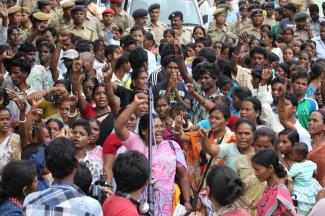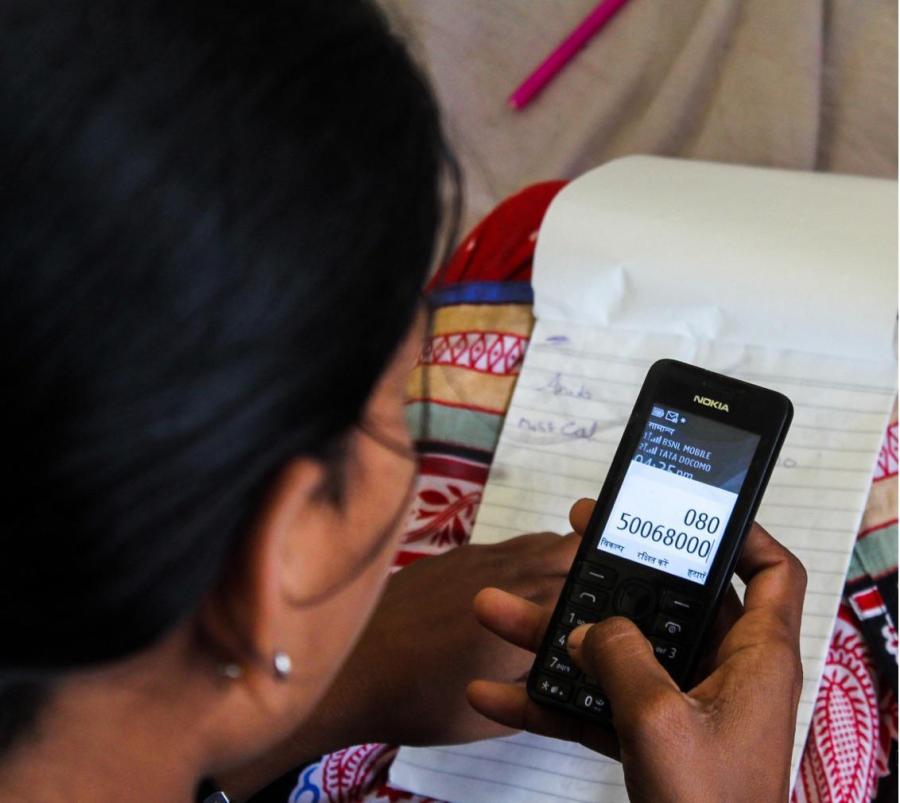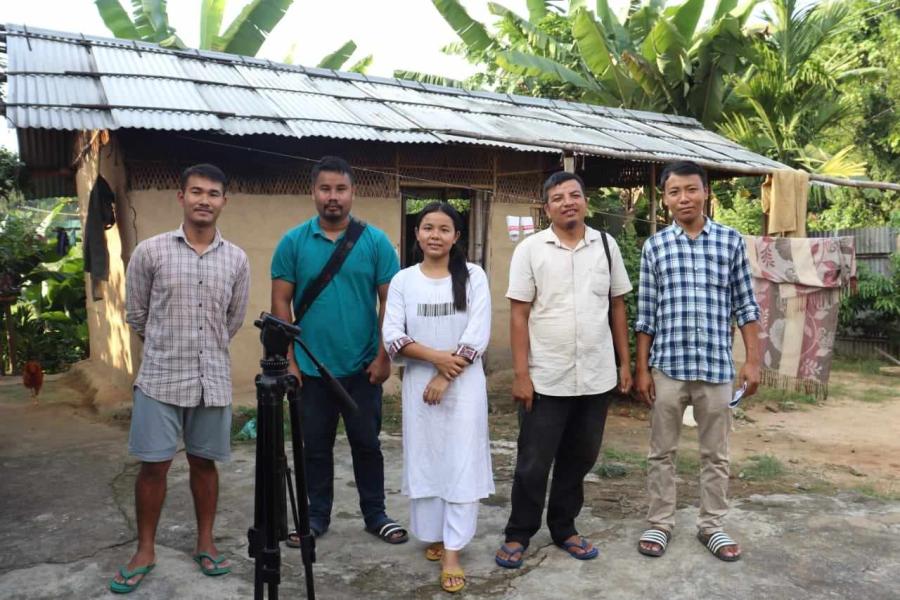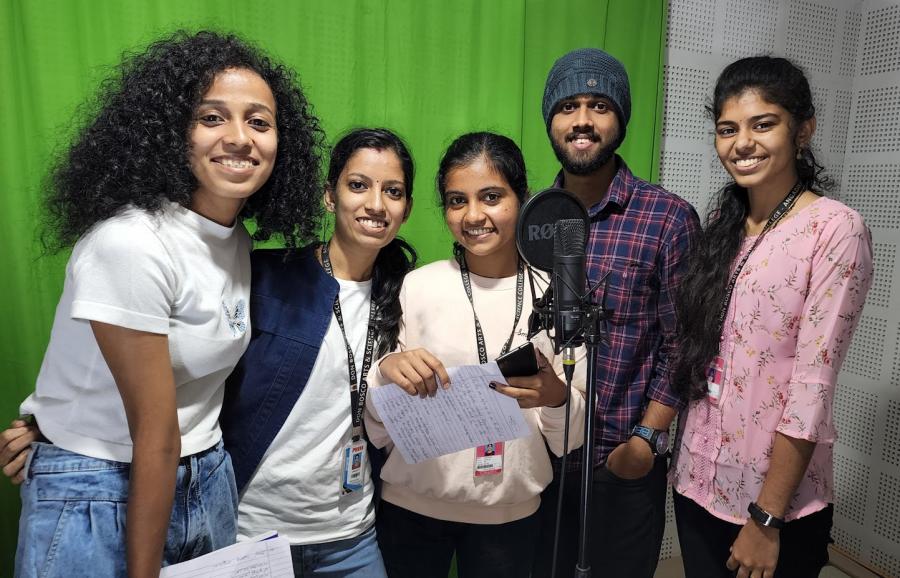
Cultural Survival’s 2013 Ellen L. Lutz Indigenous Rights Award recipient, Dayamani Barla, continues to lead a brave march for justice to protect her ancestral homelands and shows
what the world can learn from an Adivasi model of sustainable development.
The central Indian state of Jharkhand, which means “land of forests,” is also a land of unrivaled mineral wealth with a hallowed history of legendary tribal uprisings and resistance. In the late 18th century, Santhal tribe leader Tilka Manjhi seeded one of the earliest rebellions against colonial brutality in India. Other brave leaders, such as Birsa Munda, followed in his footsteps to challenge British imperialism. These legendary crusaders of freedom and justice have etched themselves in the imagination of tribal communities in Jharkhand through their traditional dances, songs, and folklore. And so it is no surprise that Jharkhand would also produce Dayamani Barla, a woman from the fierce Munda tribe, who has emerged as one of the most articulate and steadfast advocates for the rights of Adivasis in India. Dayamani has dedicated her activism to protecting her homelands, where colonial oppression has disproportionately displaced and devastated India’s tribal populations, threatening their traditional livelihoods, heritage, and very survival. In Jharkhand alone, millions of tribals have been displaced to make way for dams, mines, and industrial projects.
Criminalization of Dissent
Last May, Cultural Survival honored Barla by awarding her the first Ellen L. Lutz Indigenous Rights Award during the UN Permanent Forum on Indigenous Issues. Barla was imprisoned for nearly two months in 2012 for leading a people’s movement in Nagri, where fertile agricultural land was grabbed to make way for prestigious business and law schools. “Our ancestors had always challenged the culture of domination since the Indigenous people believe in cultural diversity and pluralism. We want a new society which respects all cultures,” she noted in her acceptance speech.
Since winning the prize, Barla received some good news regarding the protests in Nagri that led to her arrest. Jairam Ramesh, Minister of Rural Development, made recommendations to shift the site of the business school, the Indian Institute of Management, to another location in Sukurhutu. Barla said, “I urged Mr. Jairam Ramesh to save fertile agriculture lands belonging to farmers, which is a huge benefit to its people and state and use barren lands to construct these schools. We are not against these educational projects; however, we will not give up our ancestral homelands, where we farm.” The rural minister was quoted in agreement in Calcutta’s Telegraph: “Activist Dayamani Barla has suggested Sukurhutu, where vast swaths lie barren. Personally, I too believe that Nagri was not the right choice and Sukurhutu is a good option. I have urged state officials to take the matter forward.” Today, Barla continues to evoke the wrath of corporations, land mafias, and politicians, who have seen the potency and power of people’s movements in Jharkhand against industrial, mining, and dam projects. In the past, Barla, along with an unflinching mass movement of Adivasis, also brought the operations of one of the world’s largest steel giants, Arcelor- Mittal, to a halt. The movement’s bold resistance stopped this megacorporation from displacing nearly 70,000 people from over 40 villages and seizing over 12,000 acres of land.
Since winning the ELL Award, Barla has continued her activism against injustices facing Adivasis in various districts across Jharkhand. Recently she traveled to Bokaro District to support the demands of farmers whose land was acquired by Electro-Steel Casting’s plant. Barla says the company has deceived thousands of small farmers who have not received jobs or just compensation while their land has been taken away; she reports that Electro-Steel has filed a lawsuit against her. The lawsuits that continue to mount against Barla are a grim reminder of how criminalization of activism is increasing across India. Activists routinely face threats, violent intimidation, and prison sentences for dissent and the demand of corporate and state accountability. During the prize ceremony, Barla remarked how the “looters of the state” receive protection and how human rights defenders, who are protecting democracy and the rights of future generations, are deemed terrorists by the state. “Human rights are being attacked left, right, and center,” she said. “In the entire Jharkhand state, mass movements are going on for protection of water, forests, land, and environment. All through the country, farmers are living under the shadow of terror of displacement. [The] State is dubbing them as anti-social elements, extremists, and Maoists and implicating them in dozens of false cases and packing them off to jails.”
Terror of Displacement
As a child, Barla experienced the pain of dispossession firsthand when her parents, unable to read or write, were cheated off their land by false thumb impressions that were taken as
their signatures. “Our family had nothing left. Our whole family scattered…my mother traveled 150 kilometers away from her home to work as a servant. What I had seen in my childhood
and how Indigenous people were suppressed in our society inspired me to be a journalist and an activist,” she said. Hailing from the Munda tribe, Barla put herself through school by working as a maid. As one of the first female tribal journalists in India, she quickly learned that tribals needed autonomy and control over the tyrannies of media storytelling, where their voices, history, and resistance against injustices were poorly represented in mainstream media. So, along with her friend, Barla took out a small loan to start a tribal publication, Jan Haq (People’s Rights), to document the stories behind the human rights abuses against Adivasis in Jharkhand. “We will write our history with our own pen,” she resolved. Barla says that her activism was emboldened by watching the uprising against the Koel-Karo hydroelectric dam, a project that was planned in 1955 but has yet to begin due to continual delays and thwarting imposed by the fierce, long-term opposition of tribals. This resistance is often cited as one of the most successful mobilizations against big dam projects in India.
Weaving Her Own Narrative
Barla strongly rejects suggestions of the absorption and assimilation of tribals into the mainstream. Instead, she reminds us how the dominant cultural and economic paradigm can learn from the Indigenous worldview that lives in harmony with nature and respects community ownership of natural resources and collective decision-making. Barla explains: “We don’t view nature merely as a commodity. Indigenous society is nature-based. These communities will exist so long as they are linked with water, forest, and land. When Adivasis get displaced from their land, forests, and water, they not only get displaced from their dwellings and livelihood but also from their social values, language and culture, economy, and history.”
Her eloquent writings and oratory skill remind us of the irreplaceable diversity that Adivasis bring to the richness of India’s cultural heritage and how the protection of tribal human rights is essential to reclaiming its democratic ideals. “We would like the government to restore our mines, clean up our polluted rivers, and bring clean drinking water to our communities,” she says. “This fight is the fight to save humanity. We need a fundamental shift in the way we view development. The challenges are big, and I will not bow down. Our ancestors have walked down this path before us, and our resistance will not stop.”
—Rucha Chitnis is the Director of Grantmaking at Women’s Earth Alliance. Follow Rucha Chitnis on Twitter @ruchachitnis



